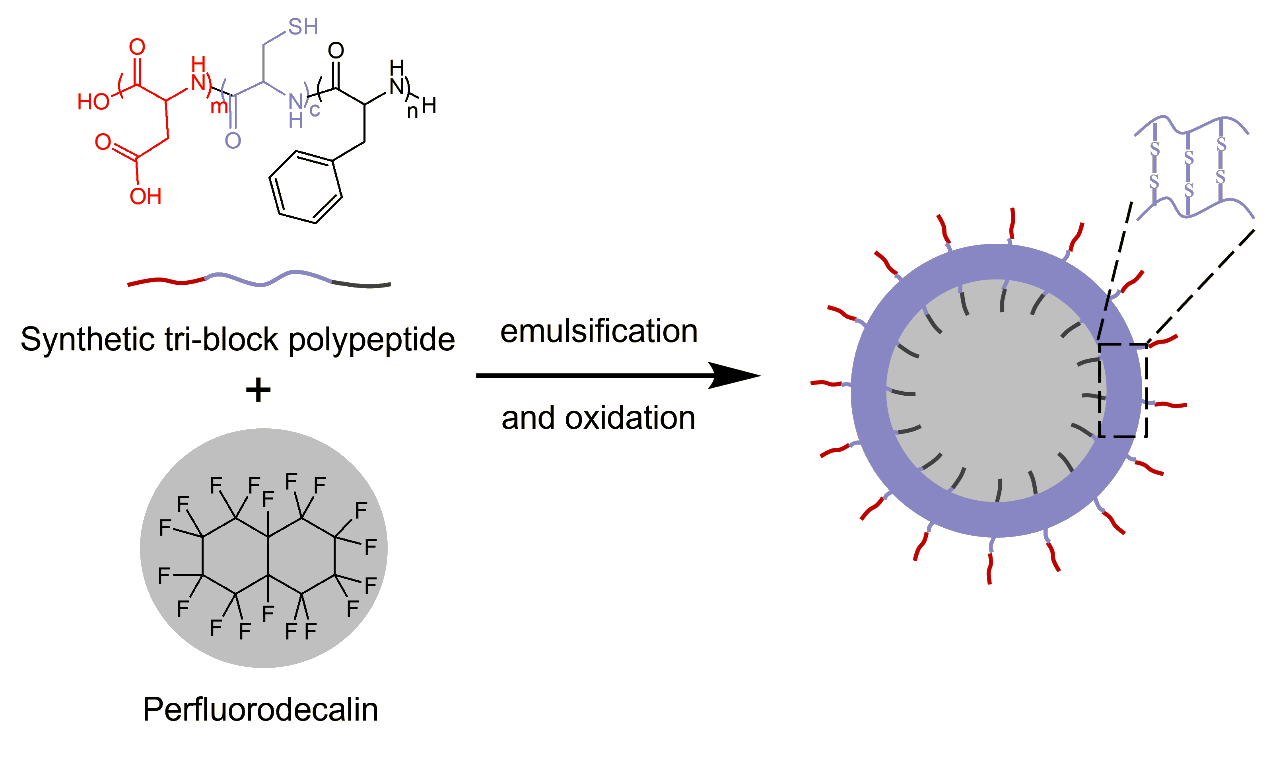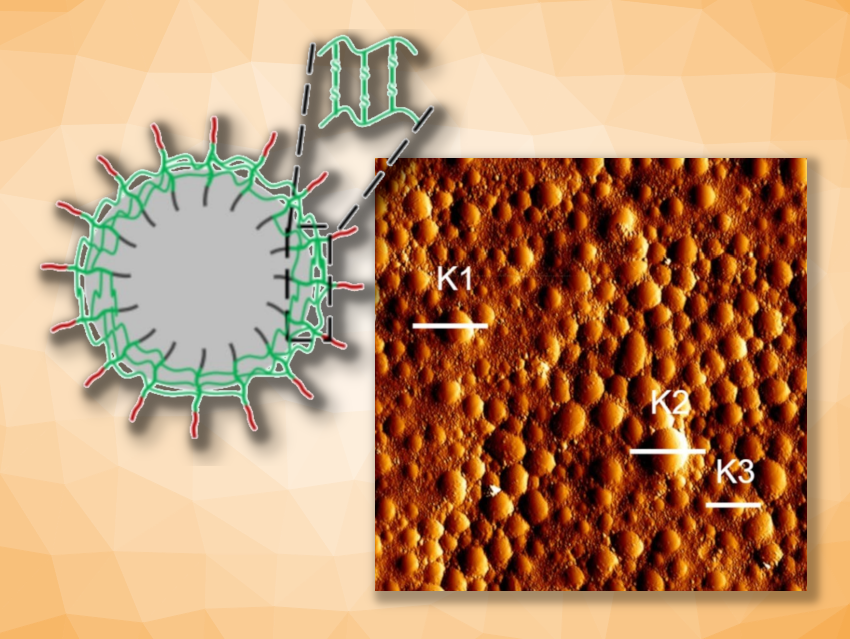Every day, patients receive red blood cell concentrates to maintain oxygen delivery and potentially save their lives. However, due to limited storage times and a fluctuating number of donations, there can be shortages in donor blood and blood products. Artificial oxygen carriers could reduce the dependency on and the demand for red blood cells. Perfluorodecalin (PFD), for example, could be an active component in artificial oxygen carriers. The compound can dissolve large amounts of oxygen and shows relative biological inertness. However, PFD needs to be encapsulated or emulsified before intravenous application because it is not miscible with blood.
Huayang Feng, Christian Mayer, University of Duisburg-Essen, Essen, Germany, and colleagues have synthesized PFD-filled triblock peptide capsules that could potentially serve as artificial oxygen carriers. The capsules consist of a liquid PFD core and a solid peptide membrane as the shell. The triblock peptide is composed of a hydrophilic aspartate block, a hydrophobic phenylalanine block, and a central cysteine block for cross-linking (pictured in purple). The team synthesized the peptide via the successive polymerization of the three corresponding N-phenoxycarbonyl amino acid monomers in the presence of n-butylamine as an initiator.

To synthesize the filled capsules, the peptide was suspended in an aqueous solution and reacted with dithiothreitol (DTT) to reduce any disulfide bridges to free thiol groups. Then, PFD was added and the mixture underwent ultrasonication to form an emulsion. Finally, hydrogen peroxide was added as an oxidant to induce crosslinking via the formation of disulfide bridges.
The team found that most of the synthesized PFD-filled triblock peptide capsules have suitable diameters in the range from 200 nm to 1,000 nm. The capsules show good mechanical stability and allow for fast gas exchange. They also exhibited little cytotoxicity. These features could make the PFD-filled peptide capsules promising candidates for applications as oxygen carriers.
- Cross‐linked Triblock Peptide Capsules as Potential Oxygen Carriers,
Huayang Feng, Jürgen Linders, Miriam Cantore, Jonas Fabrizi, Annika Kirsten, Sascha Myszkowska, Eva Hillen, Florian Uteschil, Sebastian Buchholz, Andrea Hermsen, Maria Davila Garvin, Katja Bettina Ferenz, Christian Mayer,
ChemistryOpen 2024.
https://doi.org/10.1002/open.202300282




